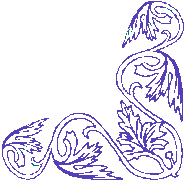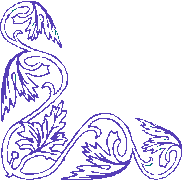



An attempt has been made to relate the minute identifying text at the bottom of cards produced by Mason to the date they were used. At this stage it is a very tentative arrangement, but hopefully will become substantiated as more dated examples are found. No examples of Mason cards are known outwith the 1880s. Apart from the cases where a particular card has been dated by hand, the dates generally come from the periods during which the photographers were known to be operating
The table below arranges a selection hopefully in date order, with comments. It is not clear whether the text was handwritten before being transferred to the printing machine - some of the earlier examples look to be so. It divides into three zones - before the use of the 'Glasgow', perhaps 1880 till 1883, then the period where that name is used, maybe 1883 till 1885, and the later third zone, characterised by the use of descenders, principally on the 'G' and 'M', perhaps till 1889.
| PRINT ON CARD | DATE RANGE | TEXT LENGTH | COMMENTS |
|---|---|---|---|
 |
After 1880 (before 1904) | 9.2 mms | Armour is first recorded in 1880, and this could be as early as that , though there is no justification for this other than its handwritten appearance. |
 |
On or before 1881 | 13.9 mms | The card which bears this text names Dundee as one of Urie's premises, and the latest date we have for Urie there is 1881, so this card should be on or before this date. It is an italic script, with serifs on the 'M'. |
 |
After 1883 | 14.7 mms | The only worry about this one is the descender on the 'M', a feature which we do not see again till after 1885, as the examples are arranged here. No serifs are found in later examples |
 |
Between 1882 and 1885 | 14.4 mms | the use of lettering on the back of dark cards does not seem to have been favoured for a long period, perhaps just 1884 - 1885. The font is not now italic. It is to be noticed that the form of the letter 'a' in Mason changes from this point on. |
 |
Between 1884 and 1885 | 12.3 mms | A closely dated example, which usefully identifies the end of the non-descender period |
 |
Between 1884 and 1886 | 10.4 mms | From now on, the script is characterised by the use of descenders on the 'G' and 'M', and also in this example and the two below, by an incurled 'G'. |
 |
used in 1886 | 13.5 mms | An elegant script from a card with the date written on it by the customer or recipient. |
 |
used in 1886 | 10.1 mms | Again from a hand dated card. This is unique in having a right side descender on the 'C' of 'Company' |
 |
after 1885 | 13.4 mms | the initial 'G' has lost the inward curl from henceforth, and the 'e's have a decided downward slope on the inside stroke. |
 |
after 1887 | 10.7 mms | Back to an italic style, in a form which is not too different from the earlier examples. This is the latest closely dated form at present known. |

